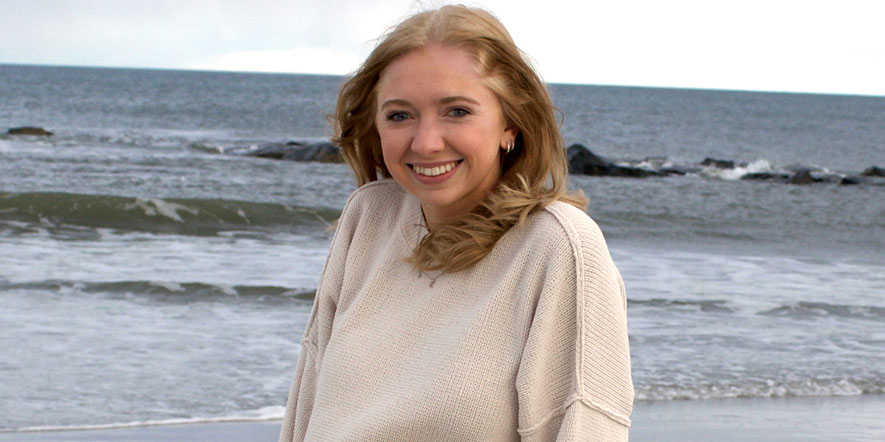 Alzheimer's Research Volunteer Alyssa Freeman: Amplifying Positive Impact"
class="bg-img"
fetchpriority="high"
loading="eager"
decoding="async">
Alzheimer's Research Volunteer Alyssa Freeman: Amplifying Positive Impact"
class="bg-img"
fetchpriority="high"
loading="eager"
decoding="async">
News from the Memory and Aging Program at Butler Hospital
April 15, 2021
But her studies and her experience volunteering at the Memory and Aging Program at Butler Hospital have steered her in a different direction – one that she says she’s excited about because it will allow her to be part of larger efforts that can help far more people than she could have helped individually on her own.
“I always thought that to help people, I had to be a counselor or work with them one-on-one,” Freeman says. “But at the end of my undergraduate education I became interested in the research aspect of psychology and how it can really help to change the lives of so many people all at once, by paving the road for advancements in treatments and knowledge that can lead to better outcomes.”
Freeman double-majored in Psychology and Criminology at Stonehill College. She’s currently pursuing a master’s degree in Forensic and Legal Psychology at Roger Williams University, but she’s already got her sights set on what’s next – a doctorate in Clinical Psychology.
“Psychology is such a broad field, so I’ve taken a wide variety of classes throughout my undergraduate and graduate education including lots of research methods classes. That really opened my eyes to the many ways to get involved in the field, and I’ve come to really appreciate how research can help to create better conditions and better overall lifestyles for countless people,” Freeman says.
So last fall she began looking for opportunities to get involved in research and get some first-hand experience while she finishes her master’s degree.
“My grandfather passed away from dementia, so when I came across the Memory and Aging Program it stood out to me and I immediately wanted to get involved and help in any way I could,” Freeman says.
She began volunteering in November and says the experience has already left a big impression on her.
“Actually getting to apply everything I’ve learned in school in a real-life setting has been wonderful. It’s also been really surprising to see how many people are involved in the research process and how much attention to detail is involved,” Freeman says.
“When you learn about research in school you picture one researcher working on a study, but there are so many researchers working together on each study, and so many other people involved to help make it happen.”
Freeman has been working side by side with one of those people helping to make research happen at the Memory and Aging Program – Denise Jerue, who is a research infusion nurse.
“Right now Denise is helping the program to prepare for a new study, so I’ve been helping her to stay organized and be sort of a second eye to look through all the binders of information and make sure everything is all set. It’s really cool to see behind the scenes of a trial – how much thought, planning, work and attention to detail goes into it. It really highlights for me how much people can and should trust research,” she says.
Already, the excitement of what can come from all of that hard work, thought, planning and collaboration is apparent in Freeman as she talks about what the future might hold for Alzheimer’s research, and for herself.
“There are so many trials going on now for Alzheimer’s and there’s so much being learned about the disease – risk factors, prevention, treatments, all at the same time,” she says. “I’ll be at RWU for another year-and-a-half and I plan to keep volunteering at the Memory and Aging Program throughout that time, and really get involved in multiple aspects of the program. It’s been a great experience already, because even though research is such a precise process, the people involved like Denise really care about every person that’s involved. So you get the best of both worlds, helping individual people but also the greater population at the same time.”
Disclaimer: The content in this blog is for informational and educational purposes only and should not serve as medical advice, consultation, or diagnosis. If you have a medical concern, please consult your healthcare provider or seek immediate medical treatment.
Copyright © 2026 Care New England Health System